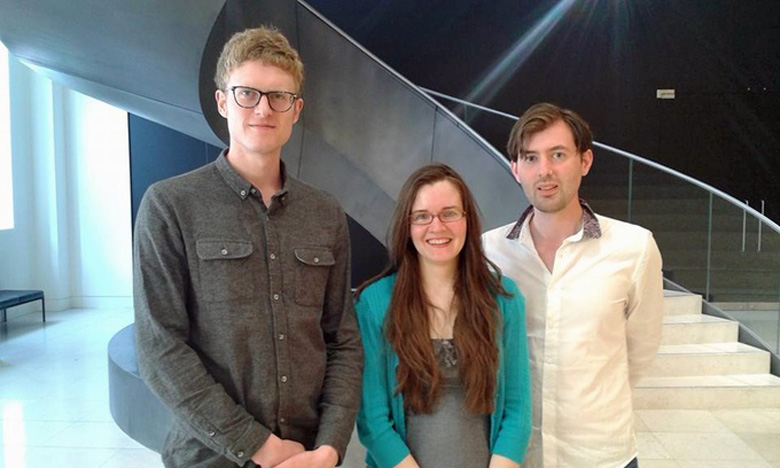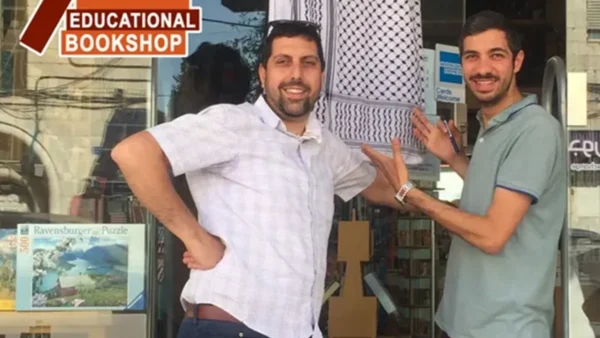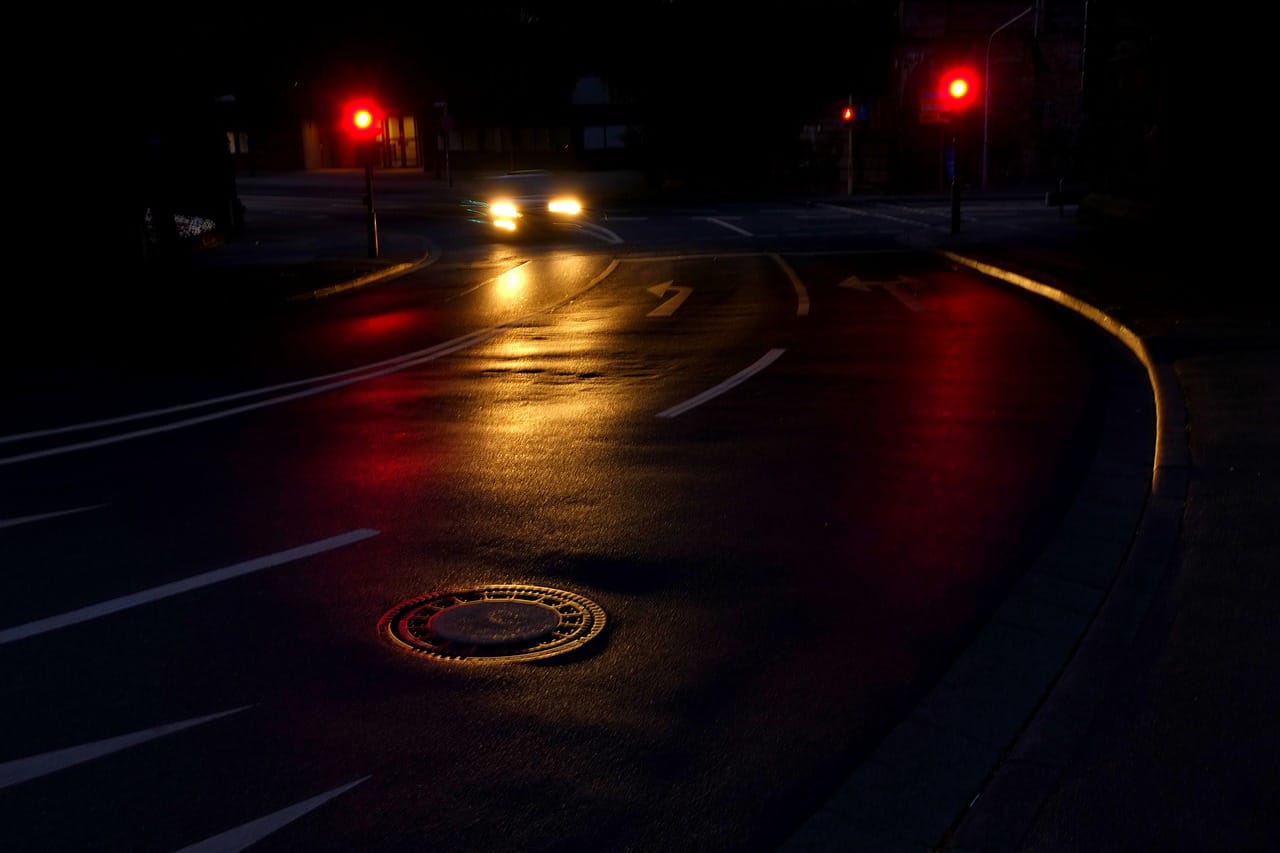Dodo Ink is a new independent publisher in the UK, promising to publish “bold, daring, risky but accessible literary novels”. They’re currently running a crowdfunding campaign to fund their first three novels, with incentives ranging from free books to getting your own dedication page.
One of the founders, Sam Mills, is a writer (I reviewed her 2012 novel The Quiddity of Will Self on this blog), and another, Thom Cuell, is a book blogger/reviewer (of Workshy Fop fame). I interviewed the two of them recently to find out more about how and why a writer and a reviewer decided to start a publishing company, and how it’s going so far.

When and how did you first get the idea to start Dodo Ink?
THOM: I was pretty drunk, to be honest. I woke up and Sam had told everyone about it, and it was on social media, so I couldn’t really back out then. I’d also apparently said that I’d get a Dodo tattoo if we hit our Kickstarter target, which I’m really regretting.
SAM: Well, memory is an unreliable and subjective thing. I am sure we set it up because we own a pet Dodo and he wanted his own press named after him.
Do you think the larger UK publishers are avoiding these more daring books? If so, why do you think that is?
THOM: We’ve definitely seen some established writers struggling to get books published in recent years, and the feeling is that the industry has become ‘risk averse’. You can put it down to recession, the consolidation of major publishing houses, supermarkets, the repeal of the Corn Laws, whatever… but I’d rather talk about what independents can do, rather than what majors can’t. We feel like there’s still a readership for novels that play with form, or express outrageous ideas, and the success of And Other Stories, Galley Beggar, and others shows that independents are currently doing a better job of getting those novels out to readers.
By focussing on a smaller number of books, we can take the time to explain what makes them special, and give them the love and attention they need. We can give our writers the space to develop their work without the pressure of having to shift big units. And we can build up relationships with readers on an individual level.
SAM: The fact that 6 out of 10 novels on the longlist for the Guardian First Book Award were from indie presses is significant. There also seems be a trend that big publishers are seeking out and republishing gems that indie presses find, such as Rob Doyle’s All the (originally with Lilliput Press, subsequently published by Bloomsbury) or Tom McCarthy (originally published by the small French art press Metronome for his debut, Remainder, which everyone else turned down; now published by Jonathan Cape and twice up for the Booker.)
Publishing is a new venture for both of you, so what have you learnt so far? What challenges or difficulties have you encountered?
THOM: I think the big thing has been realising that publishing isn’t just a closed community – looking at it from the outside, it can seem mysterious and forbidding, but there’s actually a lot of enthusiasm for people who want to try new things. In terms of challenges… there are hundreds of little decisions to be argued over (trade paperback or mass market?), and there are all the bureaucratic hurdles to jump through with any new business. And we love all of our books, so we’re putting pressure on ourselves, because we want them to be read everywhere! But hopefully we can channel that positively, without driving ourselves mad.
SAM: I think it is more work than we expected, but we’re enjoying it so much that we don’t mind.
On the flip side, do you think that having an “outsider’s” perspective gives you some advantages?
THOM: Definitely – as someone who has been ‘marketed to’ a lot, that gives you a good sense of what feels right. And for Sam, as an editor, she can bring the perspective of ‘how would I want to be edited, as an author?’ which is really important. There are big changes going on in publishing, and the old ways of doing things aren’t always working any more. This is a weird time, and as Hunter S Thompson said, ‘when the going gets weird, the weird turn pro’.
SAM: Definitely. I’ve worked with some incredible editors, who really want to nurture authors into writing the book the author wants to write, and making that book as good as it can be. I’ve also come across the odd bad editor, who will want an author to write the book they want the author to write.
Also, as book lovers, we spend plenty of time browsing in bookshops and it’s always tedious to see generic covers on books (you see them being cited in Private Eye). So we want our covers to be beautiful and eye-catching, for example.
How do you decide on the books to publish? Are you inviting submissions from agents or authors, or do you specifically search out the authors you want to work with?
SAM: A mixture of all 3. About a few months ago, there was a piece about Dodo Ink in The Bookseller, and since then we’ve been swamped by submissions from agents/authors. However, we are delighted to receive them! We’re working through them slowly. We’ve already had a gem that we’re keen on – a kind of mad erotic novella from a female novelist. We did seek out our debut author, Seraphina Madsen, after we were approached by James Miller, who had taught her on her MA; he said she was one of his most talented students. I remember going to meet her and feeling a bit nervous because it was the first time I’d ever had to meet an author and bring them on side, so to speak; it felt an odd role reversal, because I’m normally the author going to meet someone in the industry. But we chatted for hours and realised very quickly that we shared the same ethos about publishing and loved the same books. Seraphina is such a fine stylist and also very serious and passionate about her writing. The second novel we’re publishing, Wood Green, by Sean Rabin, a darkly comic, curious, Twin Peaks-esque tale, came to us via an agent (Jessica Craig). We are open to all approaches (but please forgive us if we take a while to read).
In a nutshell, why should people support your Kickstarter campaign?
THOM: Choose independence. Choose editorial freedom. Choose risk-taking. Choose satire. Choose fucking good books. Choose Dodo Ink.
SAM: All of what Thom said! We are very grateful to anyone who supports us. Every penny of the kickstarter is going to go on our books and our authors – on beautiful covers, on printing, on marketing. We’re not paying ourselves a penny as we’re all currently working on this for the sheer love of it. We’re all also quite broke, and unfortunately lacking wealthy relatives, hence the kickstarter. However, it’s great to be able to connect with book lovers and build Dodo together. There are all sorts of rewards & goodies for pledges, from those donating £5 and upwards. For £20, for example, some can have a choice of a paperbook or 2 ebooks and their name printed in the back of our books. For £50, you can have a set of 3 signed paperbacks and your name printed in the back.
Seriously, every pledge we get in is tremendously valued and appreciated. I get a skippy thrill inside (and also feel rather relieved) every time I see a new pledge on our page. We’ve also been moved, at times. Complete strangers have pitched in. We intend to repay that trust by doing the very best we can for our authors, and building an indie press we can be proud of.
To find out more…
If you want to know more about Dodo Ink or consider funding their first three books, you can visit the Kickstarter page, the website, or watch the video below in which they chat with Jonathan Ruppin from Foyles about the value of indie presses.



There are 2 comments
Clever group! Choice quotes! These issues keep coming up on our side of the Pond, too. Given the state of the book market and the large publishers, I think we writers are all grateful to Indie publishers.
Hi Anne
Thanks for commenting, and glad you liked the interview! I’m sorry to hear that you have the same issues there, although not very surprised. Yes, I think it’s always good when indie publishers come along and shake things up. You’d think that larger publishers with their deeper pockets would be able to take more risks, but it doesn’t always seem to work that way. Who knows, maybe some of the indies’ success will make them think again 🙂